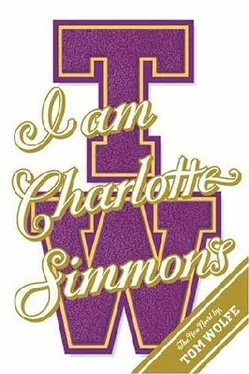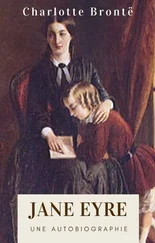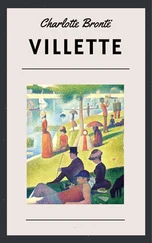Adam saw a story in it immediately—THE ANOREXIC MARATHON—and nobody at the Wave was going to grouse about his being late if he arrived with a good idea like this one—on top of the real bombshell he was delivering this evening concerning—he could already envision this story’s headline, too—THE GOVERNOR, THE BLOW JOB AND THE BRAWL.
He hurried on, pedaling past Crowninshield, past the Little Yard, all the while wondering if it was hard to get anorexics to agree to pictures. THE LIVING DEAD WHO WON’T LIE DOWN…The interviews? No problem for an enterprising reporter like him. None of these wimp-out caveats—“the names have been changed”—either. He could see it in print. He could feel it in print. There was something almost chemical about new story ideas. They gave him a visceral rush. THE GOVERNOR, THE BLOW JOB AND THE BRAWL—although little Greg Fiore would never have the guts to put BLOW JOB in a headline. He pedaled faster.
Out in the real world, as opposed to Dupont’s cocoon, the typical news-room of a daily newspaper wasn’t much different from the home office of an insurance company: the same somber, invincible synthetic carpeting, the same rows of workstations with young backs humped over in front of low-grade-fever-blue computer screens. Only college newspaper offices such as the Wave’s preserved the lumpen-bohemian clutter of newsrooms in the fabled Front Page era of the twentieth century, not that anybody at the Wave other than Adam himself or possibly Greg, the editor in chief, had ever heard of Front Page or its era, more than seventy years ago, back in the last century, which to college students today was prehistory.
As Adam walked in, Greg was rocked back on the rear legs of the old wooden library chair he used, holding forth to five other staff members, two boys and three girls, who had perched themselves wherever they could, against a backdrop of discarded pizza take-out boxes glistening with their greasy cheese residue, cardboard baskets that buffalo wings and chicken fingers had come in, cracked translucent tops from containers of coffee and jumbo Slurpees and smoothies, mealy-feeling molded gray composite-cardboard trays, various crumpled bags, and sheets of newspaper and computer printouts strewn upon an exhausted carpet splotched with raspberry Crazy Horse caffeine-jolt spills or worse. The bombness of it all! The pizza boxes…after this meeting he would have to hustle over to PowerPizza and put in four frantic hours of pizza deliveries.
A skinny Chinese girl named Camille Deng—that skank, thought Adam—was saying, “I think we’ve still got some unresolved homophobia issues here. I don’t buy the administration’s cop-out that the maintenance staff ‘thought they were combating homophobia.’ ”
“Why not?” said Greg, leaning back even farther on the chair’s hind legs and eyeing Camille down his nose. Greg and his gotta-be-tough-newspaperman pose, thought Adam. Greg and his scrawny neck and receding chin.
“Well,” said Camille, “do you think it’s just a coincidence that Parents Weekend is coming up, and the administration, which is always telling us how they’re a hundred percent behind diversity and everything, you think they might just possibly not want the parents to see descriptions of how Dupont guys make love written in chalk all over the sidewalks? ‘We’re Queer and We’re Here’—you think Dupont Hall wants to let that big cat out of the bag? Because they are here.”
“How come you’re saying they?” said a boy with shaggy red hair. Randy Grossman. “You sure you don’t have an issue yourself? Like maybe a little covert pariah-ism? Like maybe a little self-loathing lesbianism?”
Camille went Unnngghh in a groan of utmost contempt.
I’ve got an issue of covert pariah-ism, too, when it comes to Randy, thought Adam. Randy had turned into an aggressive pain in the ass ever since he came out. Like everybody else on the Wave, Adam had admired him for his courage. Now he wished to hell he’d go back in the closet.
Greg ignored Randy and said, “Look, Camille, some night-shift security guy spots all this writing on the sidewalks describing ‘cock-and-ass jobs’ and sticking fingers up the ass and stroking the prostate—I saw the remains of that one myself—and it’s two or three in the morning, and Security tells Maintenance, and Maintenance decides—remember, we’re talking about the night shift here—”
Camille broke in. “What difference is that supposed to make? Night-shift maintenance personnel are automatically retarded?”
“Let me finish. Maintenance figures this is antigay vandalism. ‘We better get rid of it before daylight.’ What’s so hard to believe about that? These guys—it’s the middle of the night, and how are they supposed to know this is the Lesbian and Gay Fist striking a blow for gay freedom? So they spend the rest of the night scrubbing it all off, and in the morning there’s nothing left but chalk smears, and they think they’ve done the right thing. I can get down with that, but the Fist goes postal. Whattaya think happened—a buncha guys got together at three a.m. and had a public relations meeting about Parents Weekend?”
Greg’s right, thought Adam, and Camille’s a skank, but Greg’s right from the wrong motive. Greg, like every Daily Wave editor in chief, was supposed to be a fiercely independent journalist who pulled no punches. Greg was not alone in Wave history in his inclination to pull lots of punches, since the administration, and fellow undergraduates, had an infinite number of ways—moral, social, and substantive—to make life miserable for any editor who took his charter of independence at face value. Nevertheless, it was important, not only for Greg’s public face but also for his private soul, for him to believe that he was one tough journalist who would rake the muck whenever it needed raking. In fact, the chances of Fearless Greg Fiore denouncing the administration for not proudly upholding the right of the Fist to write anal sex exotica all over the sidewalks for Parents Weekend never existed in the first place.
Of course, Adam, as he himself realized, was not altogether objective when it came to Greg Fiore. It went without saying that he, Adam, was the senior who should at this moment be sitting in that rickety chair looking down his nose at staffers from his eminence as editor in chief. He couldn’t blame Greg for the situation, but he found it in his heart to resent him all the same. No, at bottom it was his parents who were to blame, most specifically his father, who had left him and his mother in the shabby circumstances that made it necessary for him to work two jobs in order to get through college. Editing a daily like the Wave was a full-time commitment that left no time for things like delivering pizza and filling in for Jojo Johanssen’s brain. Adam couldn’t have accepted the job of editor if they had come on their knees begging him. Jews without money. Adam’s father was the grandson of some Jews without money—Jews Without Money was a 1930s “proletarian” novel that Adam had read just because of the title—who had immigrated from Poland to the United States in the 1920s and wound up in Boston, where they remained Jews without money. His father, Nat Gellin, had been the first Gellin, or Gellininsky—Adam’s great-grandfather had given the name a little trim—to go to college. Strapped for money, he had been forced to drop out of Boston University after two years, at which point he considered himself lucky when he got a job as a waiter at Egan’s, a big, popular, glossy downtown restaurant that attracted the sort of businessmen who liked to dine breathing the same air as bigger businessmen, flashy politicians, TV anchors, journalists from the Globe and the Herald, and the odd visiting show-business celebrity. In sum, Egan’s was irresistible to that creature of the big city, he who must be “where things are happening.” Nat Gellin had the three qualities essential for success in such an establishment: punctiliousness, tact, and charm; and in just under ten years he had worked his way up from waiter to captain to maître d’ to manager. Adam barely remembered him, but his father must have had the gift of glib bonhomie, too, because Egan’s, historically, was Irish through and through. The joint had a bar trade that by six o’clock in the evening fairly roared with the boisterous conversations of people who knew they were drinking in the right place. The bar featured massive swaths of oak with polished brass accoutrements, inch-thick glass shelves bearing ranks of liquor bottles lit from below as if they were onstage—and Nat Gellin in a gray unfinished-worsted suit, a freshly starched shirt, and a navy tie with white pin dots, a look he had picked up from the team of official greeters at “21” in New York City. He greeted one and all at Egan’s with a smile set between a pair of rubicund round cheeks. He had the knack of never forgetting a name, not even if the fellow came in only once in a blue moon. It was while he was a mere waiter and college dropout that he met pretty, cute, bouncy little Frances “Frankie” Horowitz, a high school graduate who had a job routing customer accident and theft calls for Allstate Insurance.
Читать дальше










